
Kód: 04885535
Novartis Found Symposium 291 - The Biology of Extracellular Molecular Chaperones
Autor Derek J. Chadwick
The heat shock, or cell stress, response was first identified in the polytene chromosomes of Drosophila . This was later related to the appearance of novel proteins within stressed cells, and the key signal stimulating this appea ... celý popis
- Jazyk:
 Angličtina
Angličtina - Vazba: Pevná
- Počet stran: 248
Nakladatelství: John Wiley & Sons Inc, 2008
- Více informací o knize

5499 Kč

Skladem u dodavatele v malém množství
Odesíláme za 14-18 dnů
Potřebujete více kusů?Máte-li zájem o více kusů, prověřte, prosím, nejprve dostupnost titulu na naši zákaznické podpoře.
Přidat mezi přání
Mohlo by se vám také líbit
-

Song of Sounds
15827 Kč -

Zu viele Köche
346 Kč
Darujte tuto knihu ještě dnes
- Objednejte knihu a zvolte Zaslat jako dárek.
- Obratem obdržíte darovací poukaz na knihu, který můžete ihned předat obdarovanému.
- Knihu zašleme na adresu obdarovaného, o nic se nestaráte.
Více informací o knize Novartis Found Symposium 291 - The Biology of Extracellular Molecular Chaperones
Nákupem získáte 550 bodů
 Anotace knihy
Anotace knihy
The heat shock, or cell stress, response was first identified in the polytene chromosomes of Drosophila . This was later related to the appearance of novel proteins within stressed cells, and the key signal stimulating this appearance was identified as the presence of unfolded proteins within the cell. It is now known that this is a key mechanism enabling cells to survive a multitude of physical, chemical and biological stresses. Since the promulgation of the 'molecular chaperone' concept as a general cellular function to control the process of correct protein folding, a large number of molecular chaperones and protein folding catalysts have been identified, and it has been recognized that not all molecular chaperones are stress proteins and vice versa. The discovery of molecular chaperones as folding proteins went hand-in-hand with their recognition as potent immunogens in microbial infection. It was subsequently shown that administration of molecular chaperones such as Hsp60, Hsp70 or Hsp90 could inhibit experimental autoimmune diseases and cancer. More recently evidence has accumulated to show that certain molecular chaperones are also present on the surface of cells or in extracellular fluids. A new paradigm is emerging: at least some molecular chaperones are secreted proteins with pro- or anti-inflammatory actions, regulating the immune response in human diseases such as coronary heart disease, diabetes and rheumatoid arthritis. In addition to having direct effects on cells, molecular chaperones can bind peptides and present them to T cells to modulate immune responses. This may be significant in the treatment of cancer. This is the first book bringing leading researchers in this field together to review and discuss: our current knowledge of cell stress response and molecular chaperones the changing paradigms of protein trafficking and function cell stress proteins as immunomodulators and pro- and anti-inflammatory signalling molecules the role of these proteins in various chronic diseases and their potential as preventative or therapeutic agents. The Biology of Extracellular Molecular Chaperones is of particular interest to immunologists, cell and molecular biologists, microbiologists and virologists, as well as clinical researchers working in cardiology, diabetes, rheumatoid arthritis and other inflammatory diseases.
 Parametry knihy
Parametry knihy
Zařazení knihy Knihy v angličtině Mathematics & science Biology, life sciences Biochemistry
5499 Kč
- Plný název: Novartis Found Symposium 291 - The Biology of Extracellular Molecular Chaperones
- Autor: Derek J. Chadwick
- Jazyk:
 Angličtina
Angličtina - Vazba: Pevná
- Počet stran: 248
- EAN: 9780470723333
- ISBN: 0470723335
- ID: 04885535
- Nakladatelství: John Wiley & Sons Inc
- Hmotnost: 530 g
- Rozměry: 238 × 164 × 18 mm
- Datum vydání: 14. March 2008
Oblíbené z jiného soudku
-

Wilson and Walker's Principles and Techniques of Biochemistry and Molecular Biology
1370 Kč -

Schaum's Outline of Biochemistry, Third Edition
754 Kč -

DHEA Breakthrough
197 Kč -

Biochemistry, Fourth Edition International Adaptation
1902 Kč -
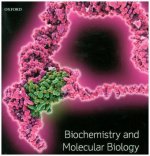
Biochemistry and Molecular Biology
1752 Kč -

Biochemistry and Molecular Biology of Plants 2e
3213 Kč -

Ice Cream
2643 Kč -

Advanced Molecular Genetics
4241 Kč -

Biochemistry
1654 Kč -
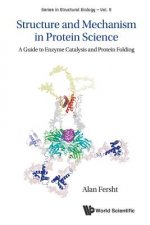
Structure And Mechanism In Protein Science: A Guide To Enzyme Catalysis And Protein Folding
2104 Kč -

Voet's Principles of Biochemistry, 5th Edition Glo bal Edition
1902 Kč -

Exercise Biochemistry
3276 Kč -

Introduction to Bioinformatics
1539 Kč -

Female Brain
399 Kč -
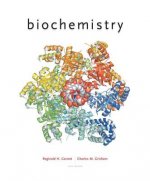
Biochemistry
10459 Kč -
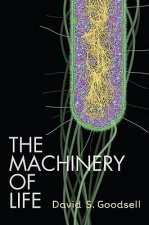
Machinery of Life
784 Kč -

BIOS Instant Notes in Biochemistry
917 Kč -

Biochemistry
10505 Kč -

Protein Structure and Function
2075 Kč -

Medical Biochemistry Principles for Medical Students
621 Kč -

Cell: A Very Short Introduction
250 Kč -

Introduction to Protein Structure
2692 Kč -

Sensory Evaluation of Food
2383 Kč -

Biochemistry: A Very Short Introduction
254 Kč -

Pulp and Paper Industry
5429 Kč -

Medical Biochemistry
3968 Kč -

Marks' Essentials of Medical Biochemistry
3092 Kč -

Essentials of Glycobiology, Third Edition
5225 Kč -

Chemistry and Biochemistry of the Amino Acids
2987 Kč -

Introduction to Proteins
2970 Kč -

Exploring Proteins
1772 Kč -

Case Files Biochemistry 3/E
1232 Kč -

Biochemistry of Lipids, Lipoproteins and Membranes
2820 Kč -

Introduction to Protein Science
2030 Kč -
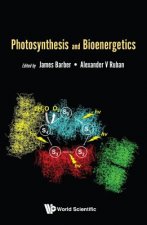
Photosynthesis And Bioenergetics
4055 Kč -

Bioavailability, Leachability, Chemical Speciation, and Bioremediation of Heavy Metals in the Process of Composting
3966 Kč -

Bioenergetics
2202 Kč -

Protein Engineering Techniques
1681 Kč -

Proteomics Protocols Handbook
9999 Kč -

Introduction to Bioorganic Chemistry and Chemical Biology
2692 Kč -

Chemistry of Life
357 Kč -

Growth Hormone Secretagogues in Clinical Practice
11357 Kč -

Textbook of Biochemistry with Clinical Correlations
8348 Kč -

Plant Biochemistry
3395 Kč -

Environmental Soil Biology
3313 Kč -

Polar Lipids
3257 Kč -

GHRH, GH, and IGF-I
6578 Kč -

Physico-chemical Properties of Jackfruit
1506 Kč -

Cell Signalling
1662 Kč
Osobní odběr Praha, Brno a 12903 dalších
Copyright ©2008-24 nejlevnejsi-knihy.cz Všechna práva vyhrazenaSoukromíCookies


 Vrácení do měsíce
Vrácení do měsíce 571 999 099 (8-15.30h)
571 999 099 (8-15.30h)